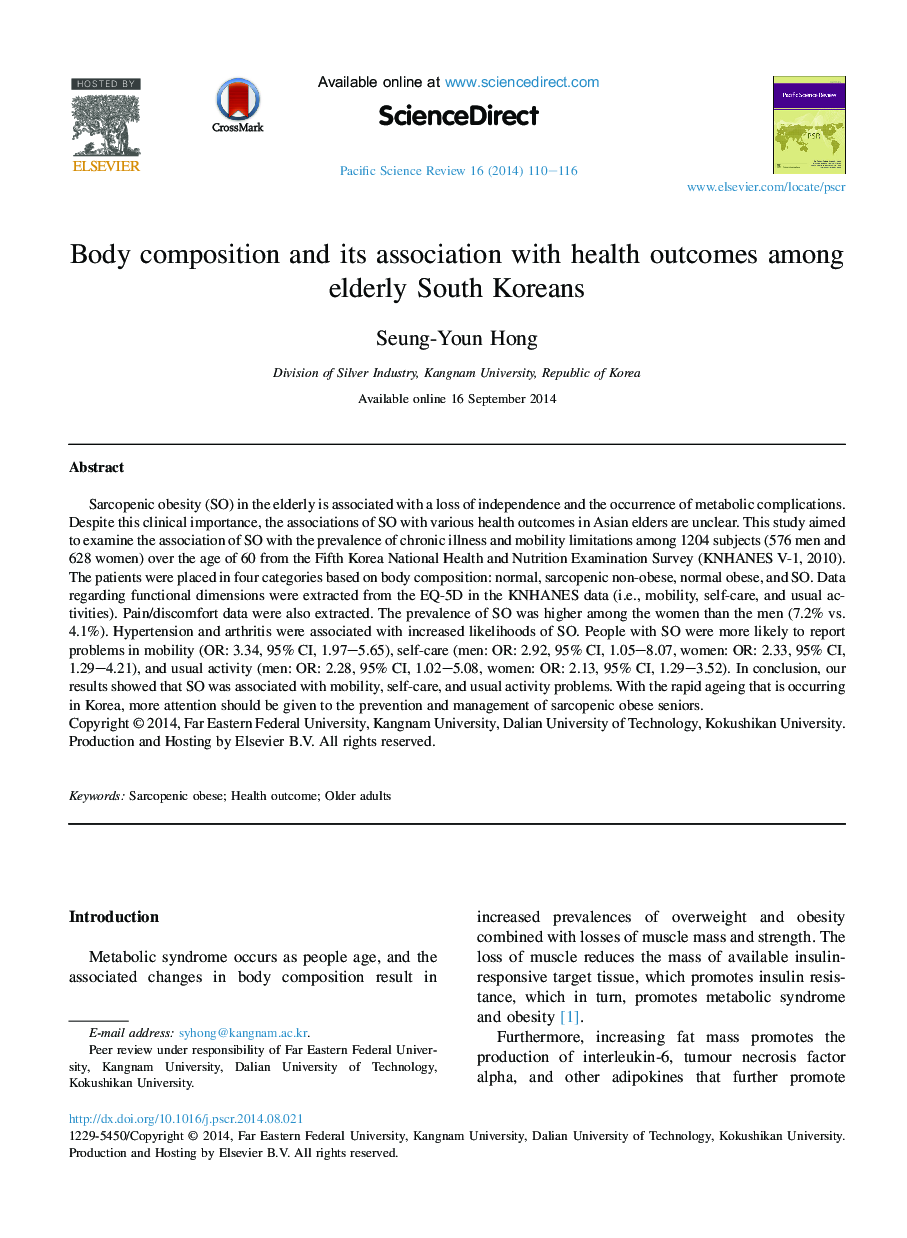| Article ID | Journal | Published Year | Pages | File Type |
|---|---|---|---|---|
| 999230 | Pacific Science Review | 2014 | 7 Pages |
Sarcopenic obesity (SO) in the elderly is associated with a loss of independence and the occurrence of metabolic complications. Despite this clinical importance, the associations of SO with various health outcomes in Asian elders are unclear. This study aimed to examine the association of SO with the prevalence of chronic illness and mobility limitations among 1204 subjects (576 men and 628 women) over the age of 60 from the Fifth Korea National Health and Nutrition Examination Survey (KNHANES V-1, 2010). The patients were placed in four categories based on body composition: normal, sarcopenic non-obese, normal obese, and SO. Data regarding functional dimensions were extracted from the EQ-5D in the KNHANES data (i.e., mobility, self-care, and usual activities). Pain/discomfort data were also extracted. The prevalence of SO was higher among the women than the men (7.2% vs. 4.1%). Hypertension and arthritis were associated with increased likelihoods of SO. People with SO were more likely to report problems in mobility (OR: 3.34, 95% CI, 1.97–5.65), self-care (men: OR: 2.92, 95% CI, 1.05–8.07, women: OR: 2.33, 95% CI, 1.29–4.21), and usual activity (men: OR: 2.28, 95% CI, 1.02–5.08, women: OR: 2.13, 95% CI, 1.29–3.52). In conclusion, our results showed that SO was associated with mobility, self-care, and usual activity problems. With the rapid ageing that is occurring in Korea, more attention should be given to the prevention and management of sarcopenic obese seniors.
